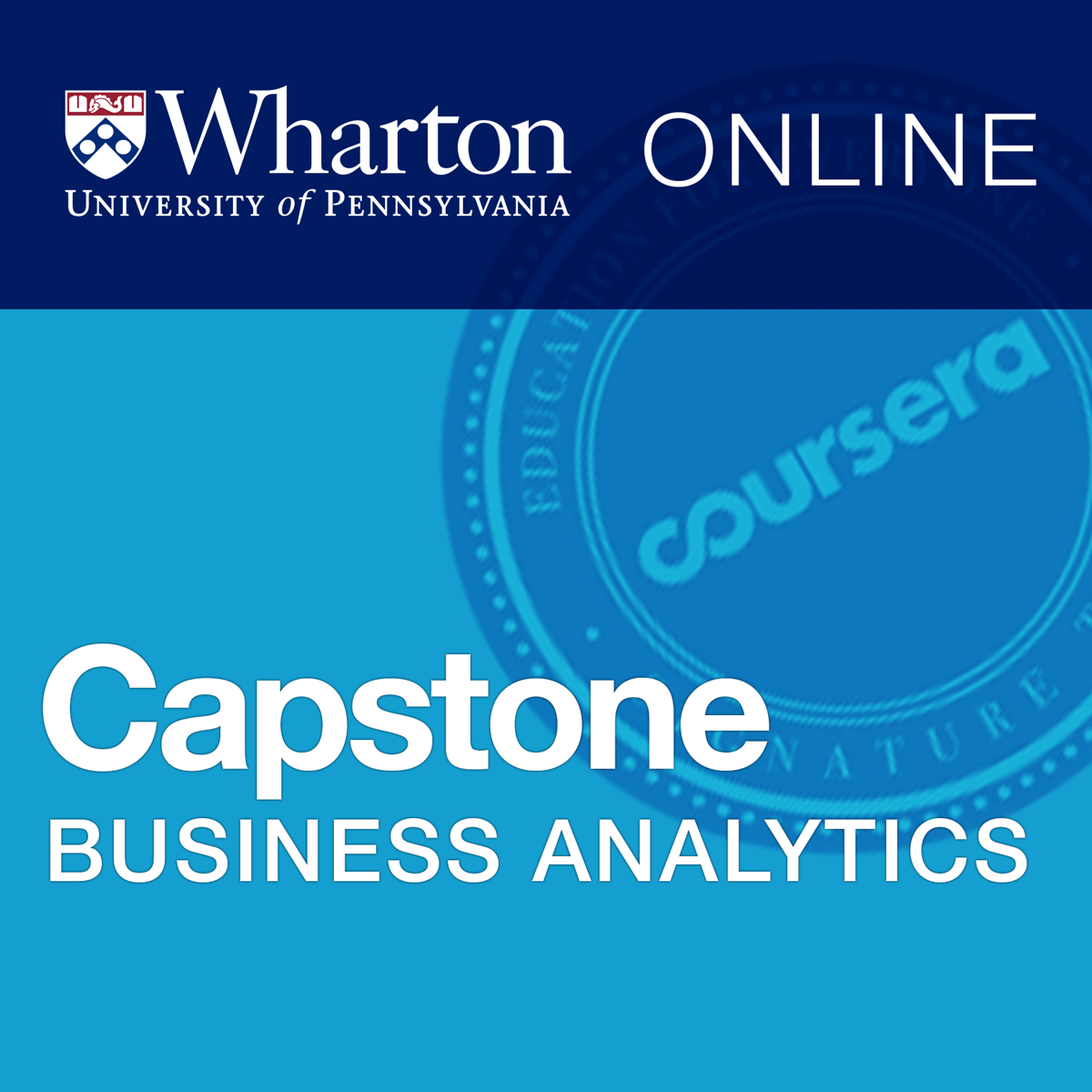Back to Courses









Business Strategy Courses - Page 43
Showing results 421-430 of 543

Oversee a Project with ClickUp
In this 2-hour long project-based course, you will learn how to use Click-Up to manage projects by creating workspaces, spaces, folders, lists, and tasks. Click-Up is an all-in one desktop and mobile app for project managers and other people who want to boost their productivity. We will create a free Click-Up account and explore the most basic features, such as tasks and lists.
Note: This course works best for learners who are based in the North America region. We’re currently working on providing the same experience in other regions.

Brand Identity and Strategy
Brand identity and Strategy is a IE Business School course for those professionals who are ready to adopt a creative approach to empowering brands.
Students will go through a journey that starts with understanding what a brand is and how they can build successful ones, whilst simultaneously segmenting their consumers appropriately. The course explores positioning and its importance to successful brands looking at perceptual maps and the well-known iceberg model. It culminates in development of real brand houses, which can be applied to the working world, and how picking the right name, colors and logo can be instrumental to a brand’s success.
The course is delivered by Rhodes Scholar winning Professor, Dr Maria Eizaguirre, a member of IE Business School’s faculty.

Research kitchen
The research kitchen is a unique format that we have developed extra for you: curious learners interested in competitive strategy and organization design yearning for a first glimpse into the world of research. It is voluntary and "just for fun" - so please, go on and have a look!
Different to other courses of our specialization Competitive Strategy and Organization Design it is comprised of brief paper sessions rather than modules. For a change, you will experience the instructor Tobias Kretschmer at the whiteboard of his very own institute at LMU Munich. Here he will summarize key findings of recent research papers on topics relating to the three courses Competitive Strategy, Advanced Competitive Strategy and Strategic Organization Design. Topics that researchers today are working on to enhance the knowledge of tomorrow. We hope you enjoy this innovative format and possibly even find some inspiration and motivation for your own future research.

Technology Commercialization, Part 1: Setting up your Idea Filtering System
New ideas based on high-technology research have a high failure rate because they hit the ground running with lopsided priorities and misalignments. Students complete this course with an Innovation Creed (“Why are you doing this?”) and a customized Idea Filter (“Are you working on the right priorities?”)—2 simple tools that steer concept-stage commercialization to success.
How to Buy Cloud - Strategies for Cloud Procurement
Cloud computing represents a fundamental shift in the way that organizations operate business systems and digital services. The nature of running software workloads in the Cloud, with on-demand resources, pay-as-you-go pricing and security and compliance requirements make Cloud Acquisition processes very different from traditional IT procurement models.
This course provides an overview of the differences, illuminates the procurement process and its key aspects, the role of key stakeholders in the organization (legal, budget/finance, security, IT, and business leadership) and how to go about planning change management with the digital transformation enabled by the cloud. It explains common pitfalls and best practices, strategies for successful cloud adoption including how to work with cloud providers, and their partners such as the APN, management and governance and success evaluation in procurement and deployment.

Business Analytics Capstone
The Business Analytics Capstone Project gives you the opportunity to apply what you've learned about how to make data-driven decisions to a real business challenge faced by global technology companies like Yahoo, Google, and Facebook. At the end of this Capstone, you'll be able to ask the right questions of the data, and know how to use data effectively to address business challenges of your own. You’ll understand how cutting-edge businesses use data to optimize marketing, maximize revenue, make operations efficient, and make hiring and management decisions so that you can apply these strategies to your own company or business. Designed with Yahoo to give you invaluable experience in evaluating and creating data-driven decisions, the Business Analytics Capstone Project provides the chance for you to devise a plan of action for optimizing data itself to provide key insights and analysis, and to describe the interaction between key financial and non-financial indicators. Once you complete your analysis, you'll be better prepared to make better data-driven business decisions of your own.

Innovation Strategy: Developing Your Fintech strategy
Welcome to Innovation strategy: Developing your Fintech Strategy! As you probably know, this is the third course in a three-part specialization focused on the digital transformation of finance.
In this course, we'll aim to bring you insights about how business strategy intersects with innovation in finance. I'm excited to have you in the class and look forward to helping you learn more about this important topic.
To begin, I recommend taking a few minutes to explore the course site. A good place to start is the navigation bar on the left. Click Course Content to see what material we’ll cover each week, as well preview the assignments you’ll need to complete to pass the course. Click Discussions to see forums where you can discuss the course material with fellow students taking the class. Be sure to introduce yourself to everyone in the Meet and Greet forum!
This course should take about four weeks to complete. You can check out the recommended course schedule below to see a quick overview of the lessons and assignments you’ll complete each week.
By the time you finish this course, you’ll have understood the job your Fintech innovation strategy should solve and mastered both internal and external innovation tools to solve the problem. You will also have been exposed to how some of the world’s leading financial companies work with innovation and seen inspirational examples from the digital masters, such as Google, Apple and Amazon. You'll be introduced to the Capstone Project for the specialization and have a chance to form some preliminary solutions for a financial company that needs to re-think its Fintech innovation strategy.
The course has a primary focus on the banking sector, with insurance as a secondary area of concern. Most examples are rooted in the North American and European financial markets.
Good luck as you get started. I look forward to seeing you in class!

Global Trends for Business and Society
In this course, you’ll learn to analyze rapidly changing global trends, their effects on consumer and labor markets, financial systems, and geopolitical relationships among countries all over the world. Professor Mauro Guillen of the Wharton School has designed this course to help you understand the magnitude of influence these trends have on the business world and society. Through real-world case studies, both historical and contemporary, you’ll examine how changes within one society affect others. By the end of this course, you’ll have gained the tools to be able to identify, analyze, and adapt to global changes as they affect your business and society.

Gender Analytics for Innovation
Gender Analytics is a way to analyze your products, services, processes and policies with a gender lens to uncover hidden opportunities for innovation and effectiveness.
We'll answer questions such as: Why are women 47% more likely than men to be injured when they get in a car accident? Why do financial products fail to meet women’s needs across their life cycles? Why will automation and AI be more likely to impact women than men? Why are gender-neutral policies are not necessarily gender-equal?
This is the introductory course in the 5-course Gender Analytics Specialization offered by the Institute for Gender and the Economy (GATE) at the University of Toronto's Rotman School of Management. In this course, you will build the foundations for conducting Gender Analytics. You will get comfortable with the concepts and terms associated with Gender Analytics, including sex, gender, gender identity, sexual orientation and intersectionality. You will examine how policies, products, services and processes may have unintentionally gendered outcomes that miss out on opportunities or create needless risks. You will learn to uncover assumptions underlying these policies, products, services and processes, and to break social, cultural, and or organizational norms that perpetuate exclusion and inequality. You will see how Gender Analytics can lead to transformational innovations. You will also evaluate your own competencies and start your Self Development Plan and begin your journey to build a workplan for your own Gender Analytics project.

Valuation and Financial Analysis For Startups Capstone
This is a peer review course. In the capstone project, you are going to apply what you have learned in the previous courses. The final output from this project is an estimation of a firm. You can choose either a public company or a startup depending on the availability of information on the firm. If you have your own startup, then you can do this capstone project on the startup. If not, then you can do this project of a public company. Therefore, the first step is selecting an actual company that you are interested in. Next, you have to do the research on and describe the firm’s industry and business. Based on your research, you make an estimate of firm’s growth, cash flows and earnings. In order to do this, you need to apply what you have learned in financial statement analysis. Once you find firm’s cash flows and earnings, you can apply what you have learned in discounted cash flow method and multiple methods to find the value of the company. In addition to the valuation, you will be given a hypothetical project and have to decide whether to take the project if the opportunity is given to the company of your choice. Be doing this Capstone project, you will complete your understanding of valuation and financial analysis of startups.
Popular Internships and Jobs by Categories
Browse
© 2024 BoostGrad | All rights reserved


